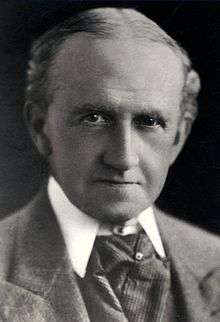Algernon Ashton

Algernon Bennet Langton Ashton (9 December 1859 – 10 April 1937) was a British composer,[1] pianist[2] and Professor of piano at the Royal College of Music 1884–1910.[3][4][5][6]
Ashton was born in Durham. He studied at the Leipzig Conservatory as a pupil of Ignaz Moscheles, Carl Reinecke and Theodor Coccius. He later studied at Hoch Conservatory in Frankfurt under Joachim Raff.[7]
He was a prolific composer in many instrumental genres. His published works exceeded 160, but there were many other unpublished works, some of which are lost. These included 24 piano sonatas, one in each key, and 24 string quartets along the same lines.
In later years he became well known for his many letters to English newspapers concerning the upkeep of the graves of distinguished people.[7] These letters were published in two volumes - Truth Wit and Wisdom and More Truth Wit and Wisdom published by Chapman & Hall.
Ashton was also well known for keeping a daily diary for the majority of his life from the age of 15 running to some 58 volumes. The diaries and the unpublished works are believed to have been destroyed during the Blitz when his family home was hit by German bombs.
Recordings
- Piano Works Vol. 1, Daniel Grimwood on Toccata Classics
References
- ↑ "Ashton, Algernon Bennet Langton". Who's Who. Vol. 59. 1907. p. 59.
- ↑ E.g. This article in The Athenæum. March 10, 1894. p. 321. Retrieved June 7, 2012.
- ↑ Obituary, C.A. RCM Magazine, (1937), 76-77
- ↑ Obituary, Musical Times, 78 (May 1937), p464
- ↑ Harold Truscott, Algernon Ashton, 1859–1937, MMR, lxxxix 1959, p142–61
- ↑ P. Webb, Algernon Ashton 1859–1937, British Music, xiv 1992 p26–34
- 1 2 Grove's Dictionary of Music and Musicians, 5th ed, 1954, Vol. I, p. 241
External links
- Free scores by Algernon Ashton at the International Music Score Library Project (IMSLP)
- Boughton, Rutland (1906–1907). "The Music of Algernon Ashton". Retrieved June 7, 2012. A 2004 partial reprint of 2 articles that first appeared in Musical Opinion and The Musical Standard in 1906 and 1907.